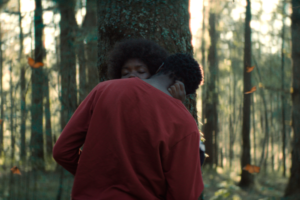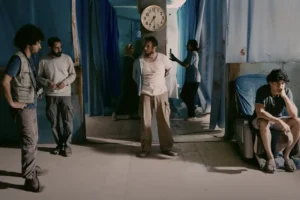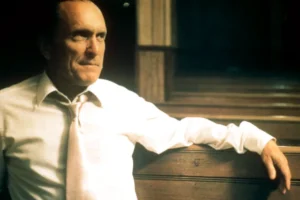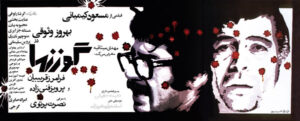by Aaron Atkins
The Love Film Festival announced the winners in various categories, and to be fair, it could be said that all the winners among the nominees deserved to be selected. I had the chance to watch almost all the films that were submitted to the festival and considering the hard economic situation happening all over the world, I tried to be as fair as I could have been. In future articles I am going to publish a summary of the critiques of all the films that I watched. However, I am going to discuss the film that achieved the award for the best film and the best supporting actor role. A film directed by Ebrahim Forouzesh. Forouzesh is one of the directors of the older golden generation of the Iranian cinema. The Generation that presented likes of Abbas Kiarostami and Jafar Panahi. Forouzesh who is now in his senior years, with all the experience that he has, has tried to offer a vibe in the film similar to those old nostalgic films. The story of the film is inspired by a book written by Hooshang Moradi Kermani, one of the most famous Iranian authors, that many of his novels have already been turned to films and TV series. The reason why Shir Too Shir is a good film, among all reasons, is firstly because of being a non-hero film, among the abundance of films relying on heroic stories. Instead the filmmaker has tried to take the story further only by relying on the life story of a kid, from birth to age seven. The hero in the film is neither his parents nor his teacher. The hero are the film viewers that have been convinced to watch the film to the end.
One of the most prominent parts of the film is the positive role of the little girl that now has become a mature lady. This woman was supposed to marry a man that has married another woman, and that woman who passed away while giving birth, has a baby that is allergic to
powdered milk and needs to be breast fed. The father tries all possible ways to provide the baby with breast milk, although he fails several times.
The main part of the story is about the woman wo was supposed to marry this man but failed. Now, she breast feeds her own baby. The highlight of the film is where the director presents this woman as the main character of the film, without many dialogues or closeups. The director has chosen Leila Otadi, one of the famous Iranian actresses for this role. Otadi has had a successful history in making both commercial and artistic films. Otadi, born on August 5th 1983 in Tehran, started her career by acting in the film “Bid e Majnoon,” a film directed by the very prominent Iranian director, Majid Majidi. Otadi who has acted in more that 50 films and TV series, also has a doctoral degree in business management. She has also been active as a screenwriter and making short films.
I personally got to know Leila Otadi from the film Mr. Alef, the first 3D film in the history of Iran and the Middle East. In that film, Otadi played the role of a rich girl in a modern luxurious surrounding very well. As I remember her role received very good reviews in the film, although the film itself was not appreciated by many of the critiques.
Now, in the film “Shir too Shir,” the same girl who successfully played a modern woman in a luxurious life, played a traditional lady living in a village very well. As I mentioned earlier, she attracted the attention of the audience without many dialogues and closeups, which is not something that every actress would be able to do. Otadi was able to express her love for the baby and his father in the film, without unnecessary dialogues. This is not something easy to do
and requires years of dedication and practice in the field. Otadi was able to shine in the film despite having one of the smaller roles of the film.
In a scene of the film, Otadi is standing among the women of the village who are now cheering for Amirali, Otadi is noticeable with just a medium shot, with her attractive bitter smile from far away. This is an extraordinary ability in an actress to convey the feeling that she can convey in a closeup shot, through a medium shot. In future articles I am going to discuss more about the director of the film Ebrahim Foroozesh, and the star of his film Leile Otadi.

















+ There are no comments
Add yours